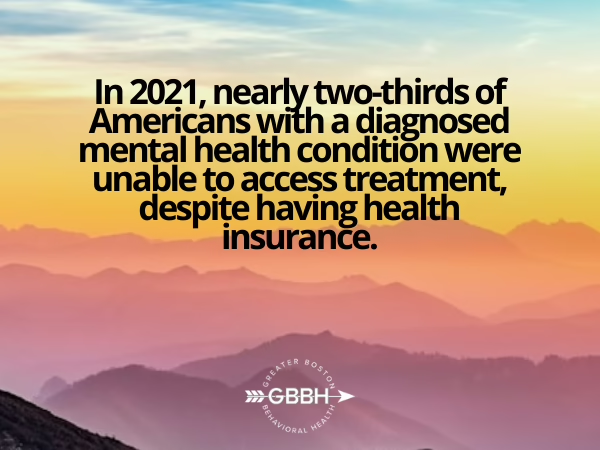Mental health is an integral part of overall well-being, yet it often takes a backseat to physical health. The stigma surrounding mental health issues has historically hindered individuals from seeking timely care, leading to worsening conditions and even crises. It’s crucial to recognize the signs of a mental health crisis and understand the importance of immediate intervention.
The prevalence of mental health conditions has been steadily increasing, affecting people of all ages, backgrounds, and socioeconomic statuses. From anxiety and depression to bipolar disorder and schizophrenia, these conditions can significantly impact an individual’s quality of life, relationships, and ability to function.
Recognizing Signs of a Mental Health Crisis
Identifying the signs of a mental health crisis is crucial for seeking timely intervention. While everyone experiences emotional ups and downs, certain symptoms may indicate a more serious condition requiring immediate attention.
Changes in behavior
Unusual or extreme changes in behavior, such as social withdrawal, increased irritability, or agitation.
Self-harm or suicidal thoughts
Expressing thoughts of self-harm or suicide is a critical sign requiring immediate intervention.
Difficulty functioning
Inability to perform daily tasks, such as getting out of bed, going to work or school, or maintaining personal hygiene.
Changes in eating or sleeping patterns
Significant changes in appetite, weight, or sleep habits.
Substance abuse
Increased use of alcohol or drugs as a coping mechanism.
Delusions or hallucinations
Experiencing false beliefs or seeing or hearing things that aren’t there.
Barriers to Accessing Immediate Mental Health Care
Despite the growing awareness of mental health, accessing immediate care remains a significant challenge for many individuals. Several factors contribute to these barriers, preventing people from seeking the help they need.
Lack of Awareness
Many people are unaware of the available resources or the signs of a mental health crisis, leading to delayed intervention.
Stigma
The stigma associated with mental health issues prevents individuals from seeking help due to fear of judgment and discrimination.
Financial Constraints
The cost of mental health care can be prohibitive, especially for those without insurance or with limited financial resources.
Limited Access to Providers
Shortages of mental health professionals, particularly in rural areas, can create barriers to care.
Fear of Judgment
Concerns about confidentiality and the potential impact on personal relationships can deter individuals from seeking help.
The Importance of Early Intervention
Early intervention is crucial when it comes to managing mental health crises. Addressing mental health concerns promptly can significantly improve outcomes and prevent conditions from escalating.
Preventing Worsening Symptoms
Early intervention helps stabilize symptoms and prevent them from intensifying, reducing the risk of hospitalization or other severe consequences.
Improved Quality of Life
Addressing mental health issues early can enhance overall well-being, relationships, and productivity.
Reduced Stigma
Seeking help early can help to reduce the stigma associated with mental health, encouraging others to do the same.
Increased Access to Resources
Early intervention can connect individuals with appropriate support services and resources.
Enhanced Coping Skills
Learning coping mechanisms and stress management techniques can empower individuals to manage future challenges.
Find Immediate Care at Greater Boston Behavioral Health
Experiencing a mental health crisis can be overwhelming. At Greater Boston Behavioral Health, we understand the urgency of your needs. Our dedicated team is available to provide immediate care and support.
please don’t hesitate to reach out to us at: (888)278-0716 or fill the contact form. Our team of dedicated professionals is here to help.
Our Crisis Services Include:
- 24/7 Crisis Hotline: Our hotline is staffed by trained professionals ready to assist you.
- In-Person Crisis Evaluation: We offer on-site evaluations for individuals experiencing a mental health crisis.
- Emergency Stabilization: We offer short-term stabilization services to address immediate needs.
We believe in providing compassionate mental health programs and effective care during a crisis. Our goal is to help you stabilize and develop a plan for ongoing support. Contact us at: (888)278-0716 or fill the contact form for immediate assistance.
FAQs on Need for Immediate Mental Health Care
What are the signs of a mental health crisis?
Signs include changes in behavior, self-harm thoughts, difficulty functioning, changes in eating or sleeping patterns, substance abuse, and delusions or hallucinations.
Is it normal to feel overwhelmed or stressed sometimes?
It’s normal to experience stress and emotional challenges, but when these feelings become overwhelming and interfere with daily life, it may indicate a mental health crisis.
How can I help someone who is experiencing a mental health crisis?
Listen without judgment, offer support, encourage seeking professional help, and stay with the person until help arrives.
What kind of services does Greater Boston Behavioral Health offer?
Greater Boston Behavioral Health provides a range of mental health services, including mental therapy, intensive outpatient programs (IOP), and partial hospitalization programs.
Where is Greater Boston Behavioral Health located?
Greater Boston Behavioral Health is located in Needham, Massachusetts.
What types of mental health conditions does Greater Boston Behavioral Health treat?
The center offers treatment for a variety of mental health conditions, including night treatment, LGBTQ+ programs, day treatment,
anxiety & depression, bipolar disorder, and trauma therapy.
Does Greater Boston Behavioral Health accept insurance?
Greater Boston Behavioral Health works with many insurance providers, but it’s essential to verify coverage before starting treatment.


